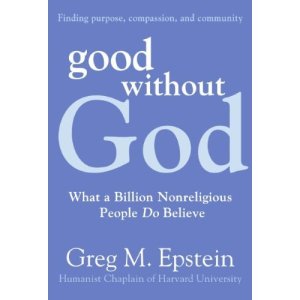 Post 5 of 40 of the Humanist Lent Writing Project
Post 5 of 40 of the Humanist Lent Writing Project
Minnesota has many organizations that support individuals who are nonbelievers. There are meet ups, Sunday gatherings, rallies, coffee nights, seasonal celebrations, book groups, bake sales, happy hours, even a summer camp! All of these organizations operate around the state. Most are based in the Twin Cities area but not all. If you have any additions, please make a comment on this post with the information or email me: kevin@HumanistNotes.com.
I will be posting in the future about national organizations, conferences, and blogs. Stay tuned.
In the Twin Cities area:
Atheists for Human Rights – www.atheistsforhumanrights.org
Atheism accepts the natural world as all there is. To live without god beliefs is intellectually stimulating. To find one’s own purpose and be responsible for one’s own life is exciting. To be free of the imagined surveillance of good and evil spirits is liberating. To seek a peaceful world through work and friendship and civic action is life-affirming. – Marie Alena Castle, March, 1994
C.A.S.H. Campus Atheists, Skeptics, and Humanists – www.cashumn.org
The Best Damned Group On Campus Since 1991:
Campus Atheists, Skeptics, and Humanists (formerly Campus Atheists and Secular Humanists) is a registered student organization at the University of Minnesota. We strive to create a community for atheist, agnostic, humanist, and other freethinking individuals. Our meetings are held each Thursday night at 7:00 PM, usually on the East Bank campus in Coffman Memorial Union. Attendance and membership are open to the public and encouraged amongst students and the community, regardless of religious or political ascriptions.
First Unitarian Society of Minneapolis – www.firstunitarian.org
The First Unitarian Society of Minneapolis, established in 1881 and affiliated with the Unitarian Universalist Association of North America, is an ethical and liberal religious community dedicated to promoting the ongoing search for truth and to affirming the inherent worth of the individual. We understand reality through human
experience, enlightened reason, scientific method, and the democratic process, and we find the central source of power and goodness within the human heart, mind, and spirit. Individually and collectively, we assume responsibility for our future, our community, our children, and our interdependent world.Our growth and actions as thoughtful, compassionate, and ethical human beings advance our humanist vision of a world of peace and love, dignity and equality, freedom and justice.
Humanist of Minnesota – www.humanistsofmn.org
Humanists of Minnesota is a nonprofit educational corporation and has been granted a 501(c)(3) tax exemption as an educational, scientific and charitable organization.
Minnesota Atheists – www.mnatheists.org
Minnesota Atheists is Minnesota’s oldest and largest atheist organization. We are a 501(c)(3) non-profit, educational organization that seeks to promote the positive contributions of atheism to society and to maintain separation of state and church.
Or Emet, Minnesota Congregation for Humanistic Judaism – www.oremet.org/
Humanistic Judaism celebrates Jewish culture and identity.Humanistic Judaism affirms the right of individuals to shape their lives independent of supernatural authority.Jewish history chronicles our continuing struggle for human dignity. Its outcome depends on human decisions and actions.We acknowledge that our Jewish heritage is a primary source for our ethics and commitment to tikkun olam (repairing the world). We create humanistic Jewish rituals and services that reflect the ethical core of Jewish history, literature and culture. We celebrate the major Jewish holidays.
Outside the Twin Cities:
Camp Quest of Minnesota – minnesota.camp-quest.org
Camp Quest of Minnesota is affiliated with National Camp Quest (Ohio), the first secular summer camp for youth in the history of the United States. Camp Quest was specifically designed for children of Unitarians, atheists, agnostics, freethinkers, humanists, or whatever terms might be applied to those who maintain a naturalistic, not supernaturalistic, world view. Our campers are girls and boys ages 8-15. We offer a Counselor in Training Program for 16 and 17 year olds.
Central MN Friends Free of Theism – www.freeoftheism.org
Central Minnesota Friends Free of Theism began in August of 1997 with support from Minnesota Atheists and ACLU of Minnesota. We’ve been meeting in a friendly, round-table atmosphere ever since, discussing rationalism, humanism, and atheism as it pertains to our daily lives and the world.
Lake Superior Freethinkers – www.lsfreethinkers.org
Lake Superior Freethinkers is a friendship group in support of: Rational thought, Morality without superstition, Freedom from religion, Separation of church and state. We are a gathering of Minnesota and Wisconsin atheists, freethinkers, skeptics, and humanists.
Red River Freethinkers – www.redriverfreethinkers.org
Located in Fargo-Moorhead area. To promote freethinking through education and activism.



